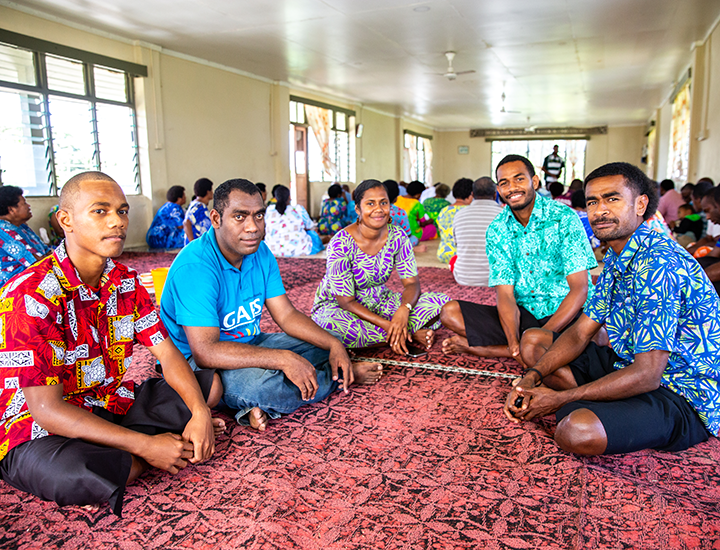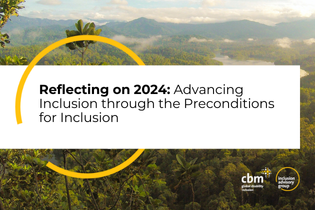Our history of advisory work in Australia
Iag, Pacific, Stories | June 25, 2024
For over 115 years, CBM has supported partners to implement programs addressing the link between poverty and disability. But to achieve a truly inclusive world, where everyone contributes and benefits, systems and societies need to be transformed.
About 20 years ago, we started asking, how can we get others who work in development and humanitarian action to join with us in breaking down the attitudinal, physical, communication and institutional barriers that stand in the way of inclusion? We started to partner with people with disabilities, through their representative organisations, to advocate for all development and humanitarian action to be disability inclusive, both globally and nationally. In 2008, the UN Convention on the Rights of Persons with Disabilities came into force.
Increasingly, disability was recognised as a human rights and development issue, not a welfare or health issue. As this understanding grew, so did the demand for practical support to implement disability inclusive policy and practice from the development and humanitarian sector, and for links with the Disability Movement.
The policy environment in Australia responded and AusAID (later DFAT) committed to a Disability Inclusive Aid Program. This created demand in the sector for guidance on how to put inclusion into practice.
CBM Australia partnered with the disability movement and the Nossal Institute, University of Melbourne to provide technical advice and capacity-building support on disability inclusion to development and humanitarian organisations. This included a series of technical partnerships between CBM and AusAID (then DFAT) starting from 2011 to today to implement their strategy Development for All: Towards a disability-inclusive Australian aid program.
As demand grew, other parts of CBM also started to provide technical support to others. Recognising the value of a coordinated advisory function, which shares and leverages the learning, experience and networks across the global federation – we started a globally coordinated advisory program in 2019 called Inclusion Advisory Group, which was then incorporated into CBM Global.
CBM Australia remains home to our largest advisory hub, contributing more than a decade of advisory and capacity-building experience.
Today, advising others is a key way of working, captured in CBM’s three ‘vehicles of change’. Combined with our advocacy and field programs, including our humanitarian work, and together with the Disability Movement, we seek to create global and systemic policy change, as well as impact on the ground in the lives of individuals, their families and communities.
https://www.cbm.org.au/stories/history-advisory-work-in-australia-inclusion-advisory-group-iag
Related Stories

Week 1 – Lent series 2025
Being held by Jesus…held together by Jesus, invites us to lean into solidarity. As we begin Lent today, we will be reflecting on the theme...

Five things organisations should think about when supporting OPDs in capacity strengthening
Strengthening the capacity of organisations of people with disabilities...

CBM IAG’s work in 2024 through the Preconditions for Inclusion
As DFAT’s disability inclusion technical partner, CBM Australia's #InclusionAdvisoryGroup (IAG) were so excited to...
